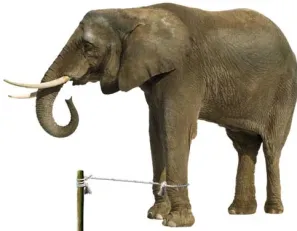You cannot outperform your belief systems.
Belief systems are so deeply ingrained into us that they influence our behavior at a sub conscious level. Which is why they are so difficult to change, if you do not even consciously know where your deep-rooted preferences come from, how can you change them?
We can see many examples of how these belief systems manifest around us
- Those who believe that money is evil rarely end up being rich.
- Those who believe people aren’t worth trusting don’t leverage human capital efficiently.
- Those who believe that relationships are a burden rarely seem to have meaningful relationships, or any relationships at all.
- Those who believe that thinking deeply about anything is an overkill are rarely decisive
- Those who believe that it is the “same shit everywhere” rarely exercise the power of conscious choice. They work the same soul crushing, mind numbing job for decades.
- Those who believe that office politics is undesirable are usually not good at it. Those who see it as a natural outcome of people competing with one another get better at it over time.
We all know a few people who are extremely talented and have the means to hop onto the next level of success but they just don’t. More often than not some self-limiting belief systems hold the person back.

I have been guilty of all of these at some or the other point of time. It is these beliefs of mine that are responsible for the situations I have had to deal with, not how good or bad a person I am. And somehow, once my belief system changed, the results changed too.
Salesmen who view customer objections as obstacles usually have a tough time closing a deal. FYI, a prospect who has objections is likely to be an interested prospect, a prospect who doesn’t care would just say “I will discuss internally and let you know” and shut you out. It took me years to figure this out, I blew many deals in the meanwhile.
Belief systems end up becoming self-fulfilling prophecies that shape our lives in ways that aren’t optimal. There is a difference between a superficial belief system and a system that one evolves into through conscious choice based on empirical observations and real-life experiences. At a high level it is difficult to tell one from the other, what matters is where the belief originates from.
As an example, those who come from a family background of working for a salary have many limiting beliefs on what it is to be on their own. I was one of those for more than a decade. I come from a family where very few have tried to deviate from the path of a regular and predictable salary, leave alone being successful on their own. But having experienced the other side of the spectrum for the past three years, I can today say that I wouldn’t go back to the other side so long as I can help it; though I haven’t seen any great success yet.
If I had expressed my opinion on this three years ago, it would have been an example of a superficial belief system that is not grounded in experience. But if I were to choose to go back to a steady salary and a corporate gig today, it is an example of a conscious choice that is based off real life experience.
Challenging these superficial belief systems is where most of self-improvement and development occur. Comfort and development rarely go together, this is not just some high-level HR talk. When they say failure and rejection are the stepping stones to success, they are spot on.
Every single successful entrepreneur out there has dealt with much more rejection than the average CEO. When Nandan Nilekani accepted the responsibility of the Aadhaar initiative, he was mocked by many. Today this initiative is driving tax filing, direct benefits transfer and even the COVID vaccination drive. Imagine being a billionaire who could have walked away into the sunset with his ego intact, how many of us would try the kind of things Nandan has tried and failed at? He deserves the respect and adulation for good reasons.
When we try things that these superficial belief systems try to keep us from doing, we usually deal with failure and rejection. But that discomfort is exactly what pushes us to get better.
Every single successful sportsperson has dealt with public failure and the occasional humiliation. Roger Federer once got thrashed 6-1, 6-3, 6-0 by Nadal in a French Open final. But he cried the most when he lost a tough five setter to Nadal in the very next Australian Open final. Failure is brutal and soul crushing but it is what teaches us best.
No one in my extended family has ever invested in the stock market. Our belief system was that the stock market is a casino where retail investors get taken for a ride. If I had accepted the superficial belief system that “we cannot be good investors”, my life would have been drastically different and most likely worse off than it is today.
What pushed me the most towards managing external capital was a chance meeting with someone who told me in clear terms that I needed to take baby steps over a period of time and test things out before making a big change. The thing is if you can have three customers, you can have ten. If you can have ten, you can as well have fifty if your model is scalable. If not for me accepting this premise and acting upon it, life would have been different today.
Many of the superficial belief systems that keep people yoked to a particular path exist as psychological buffers that protect the ego from the consequences of failure and rejection. Most of our limiting beliefs are self-imposed, the world will continue to be what it is.
Intellectual curiosity and the willingness to challenge the status quo get us much further in life than allowing ourselves to get influenced by superficial belief systems that are not grounded in real life experiences.
We need to test out everything, provided the cost of failure is not high and is something we can recover from. Fail small multiple times early on rather than failing big later on when you have no time left to do any course correction.
How does a nuanced understanding of belief systems help me in my profession?
Some of the things I try to get a sense of when I meet someone for the first time
- What is this person’s belief system based on the choices they have made so far?
- What are their actions telling me as opposed to just taking their words at face value?
- Are their words congruent with their belief system? How big is the disconnect?
If I meet a potential investor who fundamentally questions how the equity market operates, he is unlikely to be a good customer.
If I meet someone who hasn’t demonstrated the ability to stay invested in the market, I prefer not to onboard such a customer when the market is doing well. Such an individual is likely to pull out at exactly the wrong time.
When I look at the track record and communication style of a management team, I can form some high-level views about what their belief system is. Murali Divi decided not to operate in the pharma formulations space and stuck to his guns for a decade when his peers were getting 1.5x the valuation his business was getting. This tells me more about the management (in a positive sense) than any channel check or analyst report ever will. This man will not take the easy way out or get shaken in his convictions. I know that when the man speaks, he is a man of his word and can be relied upon; even if I don’t like everything about the business.
When I indicate a preference for speaking to every prospect before signing them up, you know exactly where I am coming from.








